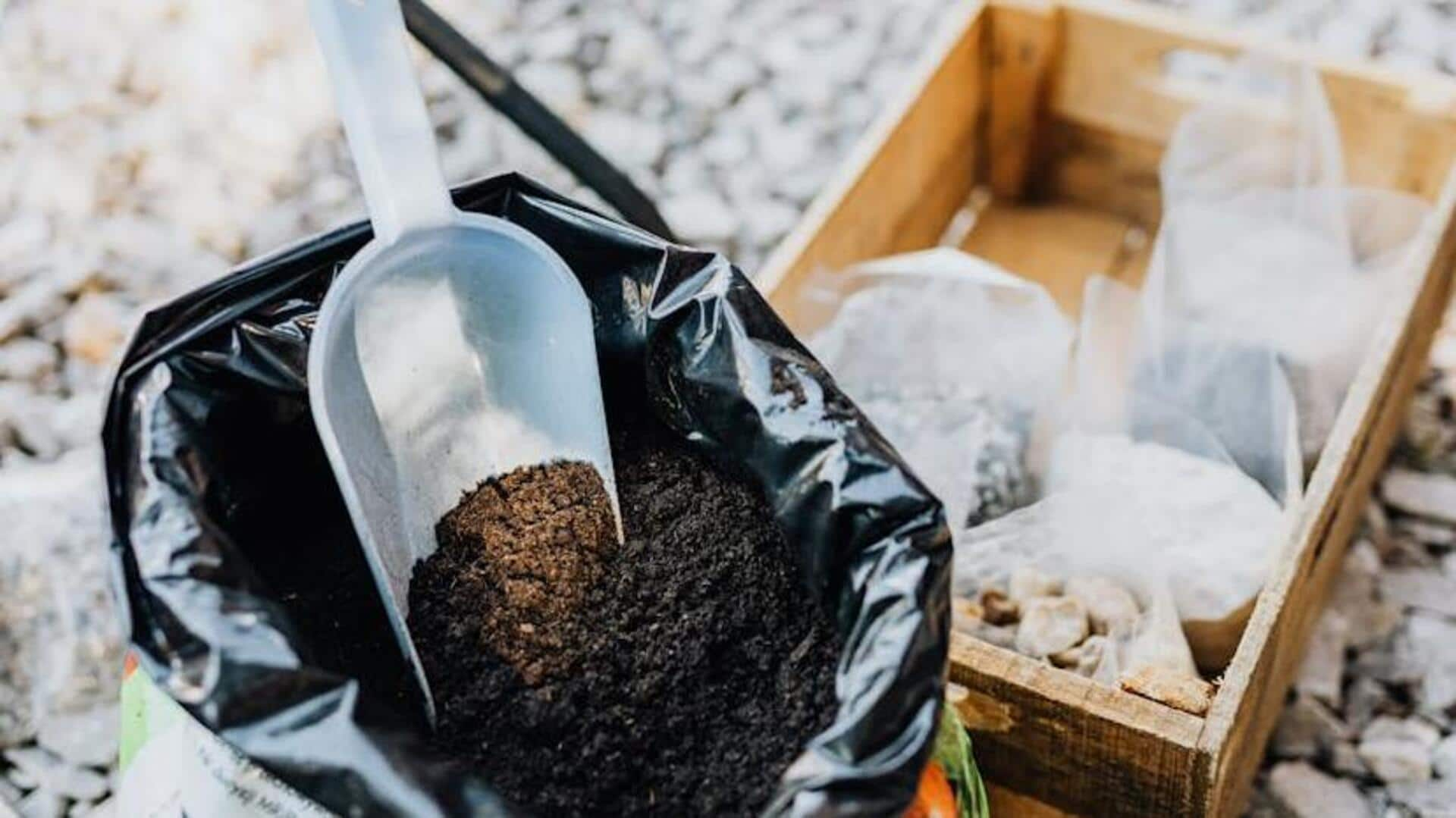Thrifty homemade organic fertilizers
What's the story
Making your own organic fertilizers is a cheap and green thumb way to feed your garden.
Not only does it cut down on waste by reusing kitchen and yard leftovers, but it also guarantees that your plants get all the essential nutrients they need without any nasty chemicals.
This article delves into four easy ways to create organic fertilizers at home using stuff you probably already have lying around.
Coffee grounds
Coffee grounds for acid-loving plants
Coffee grounds are rich in nitrogen, potassium, and magnesium, which makes them a perfect fertilizer for acid-loving plants such as roses, azaleas, and blueberries.
All you have to do is sprinkle used coffee grounds around the base of your plants or mix them into the soil.
It will not only provide nourishment to your plants but also enhance soil drainage and aeration.
Banana peels
Banana peels for potassium boost
Banana peels are packed with potassium, a crucial nutrient that aids in flower and fruit formation.
To utilize banana peels as fertilizer, you need to dry them thoroughly first and then grind them into a fine powder.
You can sprinkle this powder around your plants or incorporate it into the potting soil for an instant potassium infusion.
Eggshells
Eggshell calcium supplement
Eggshells, being nearly pure calcium carbonate, are crucial for the integrity of plant cell walls.
Simply rinse and dry the shells thoroughly, then crush them into a fine powder.
This can be directly sprinkled onto the soil or mixed with compost.
It helps combat blossom end rot in tomatoes and peppers by providing a slow-release calcium supplement.
Composting
Composting kitchen scraps
Composting kitchen scraps is a great way to produce nutrient-rich fertilizer for your garden and reduce household waste.
Practically any organic material can go into a compost bin. Fruit and vegetable scraps, coffee grounds, tea bags (without staples), leaves, and grass clippings are all fair game.
Over time, these materials decompose into humus, a rich, fertile substance that enriches your soil with essential nutrients.
Wood ash
Wood ash as potash source
Wood ash from untreated wood is a great fertilizer.
It's high in potash and trace elements like zinc and magnesium, which are good for many garden plants, particularly root crops such as carrots and potatoes.
Just make sure to use it sparingly, no more than 10 pounds per 1,000 square feet per year, to avoid raising your soil pH too much.
